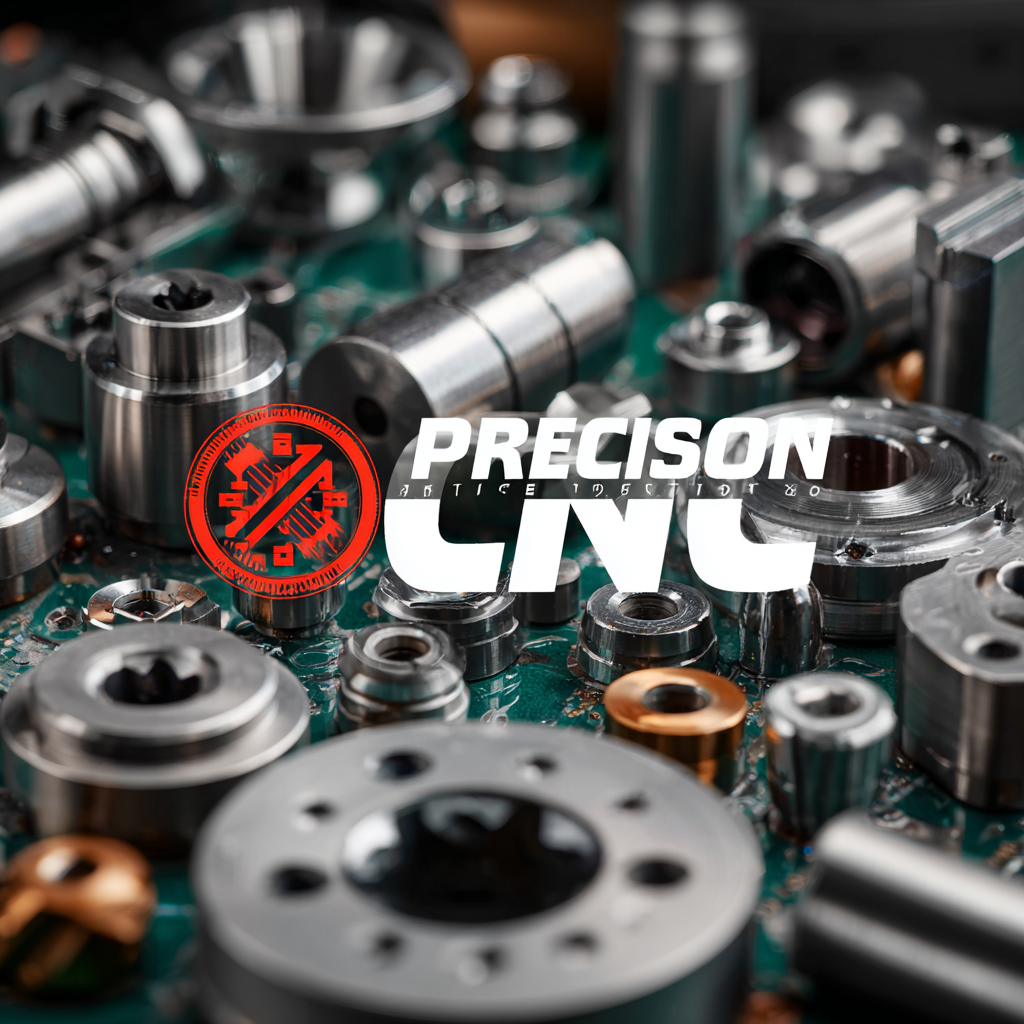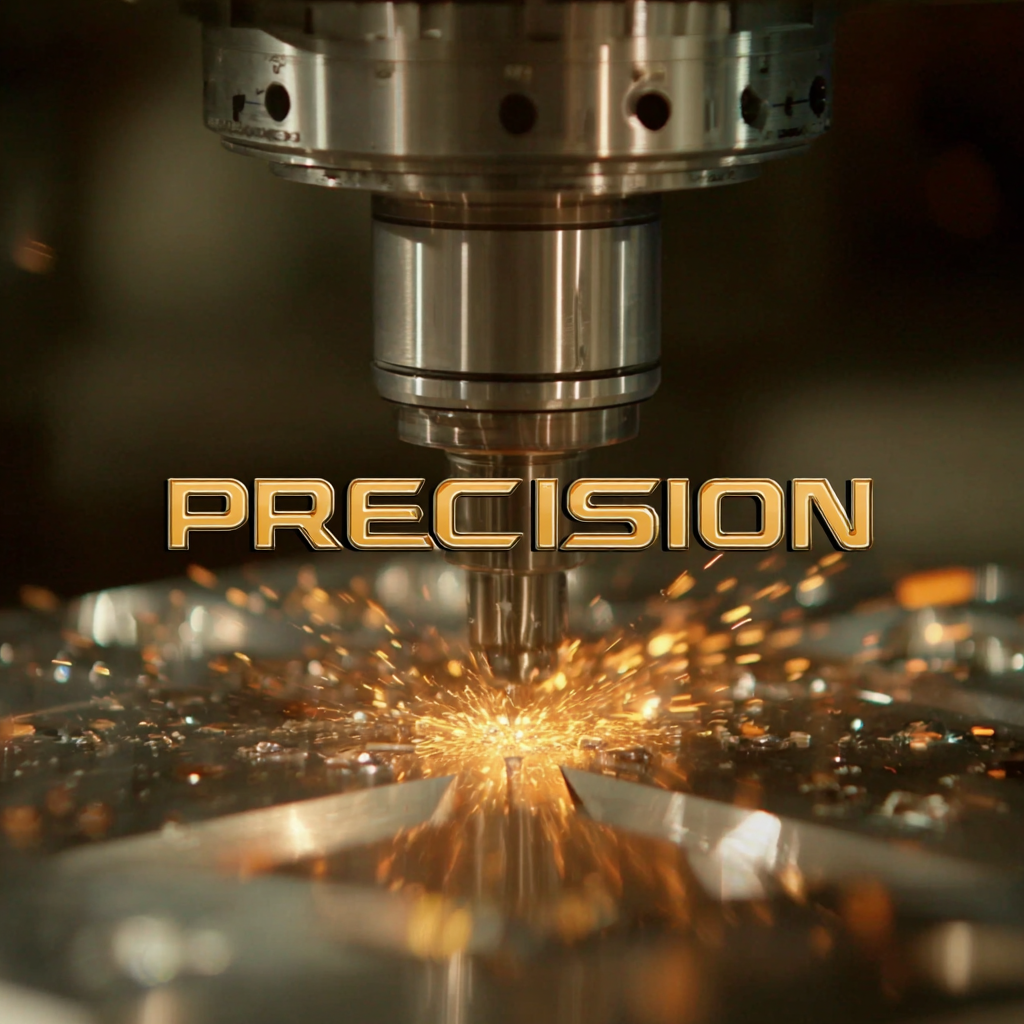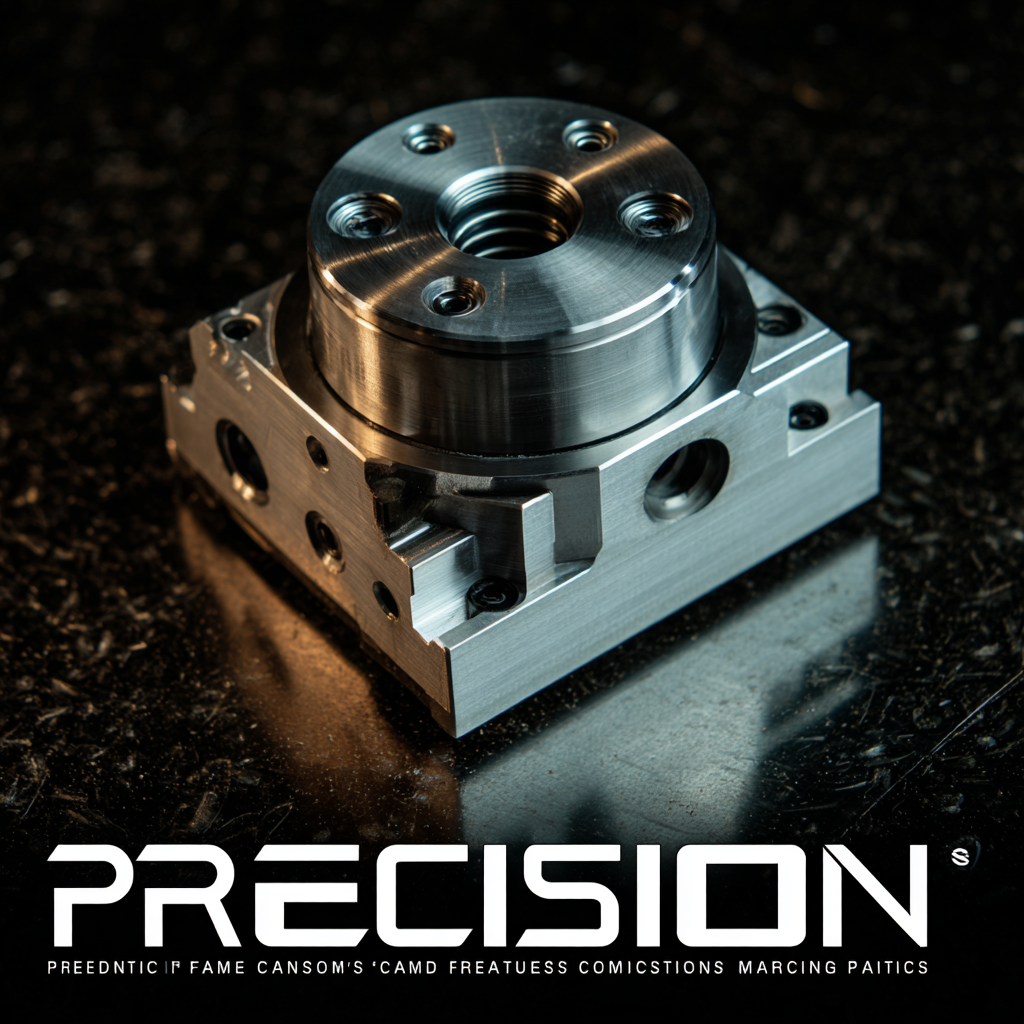In the rapidly evolving landscape of manufacturing, achieving optimal efficiency and quality is paramount, particularly in the realm of Precision CNC (Computer Numerical Control) processes. As industries increasingly turn to automation and precision engineering, they encounter a myriad of challenges that can hinder productivity and impact outcomes. This blog delves into the industry standards and digital advancements that shape the field of Precision CNC manufacturing, exploring the reasons behind the difficulties faced by manufacturers.

From the complexities of integrating advanced technologies to maintaining rigorous quality control, understanding these challenges is essential for companies aiming to enhance their production capabilities and stay competitive. Join us as we navigate through the intricacies of Precision CNC and the evolving standards that define success in this industry.
In today’s competitive landscape, precision in CNC manufacturing is not merely an option; it is a necessity for global success. The ability to create components with exact specifications allows manufacturers to meet strict quality standards, cater to diverse international markets, and maintain a strong reputation. Precision reduces material waste, minimizes rework, and enhances the overall efficiency of manufacturing operations, which is crucial for staying ahead in the global economy.
To achieve high precision in CNC manufacturing, companies should invest in advanced technologies like automated CNC machines and high-resolution design software. Regular calibration of machines is essential; it ensures that production processes align with design specifications. Establishing a robust quality assurance framework can help detect potential errors before they escalate into costly production issues.
Implementing a proactive training program for operators is also vital. Skilled personnel who fully understand the machinery and its programming can make significant differences in outcome precision. Encouraging a culture of continuous improvement can help teams find innovative solutions to common challenges, driving both efficiency and precision in every project.
| Challenge | Impact on Precision | Recommended Solutions | Manufacturing Process Type |
|---|---|---|---|
| Equipment Wear and Tear | Leads to decreased precision over time | Regular maintenance and early replacement of parts | CNC Milling |
| Material Variability | Affects tolerances and finished product quality | Implement strict quality control measures | CNC Turning |
| Human Error | Can lead to significant deviations in output | Comprehensive training and automated systems | CNC Routing |
| Software Issues | May cause miscalculations in tool paths | Regular software updates and testing | CNC Laser Cutting |
| Supply Chain Disruptions | Delays may compromise project timelines | Diversifying suppliers and better inventory management | CNC Waterjet Cutting |
In the realm of CNC manufacturing, adhering to international quality standards presents a formidable challenge for many companies. These standards, such as ISO 9001, require rigorous documentation, consistent process controls, and comprehensive quality assurance practices. For manufacturers, becoming compliant necessitates not only an investment in advanced machinery and technology but also extensive training and a cultural shift towards quality-centric operations. The complexity of meeting these criteria can overwhelm smaller manufacturers, who may lack the resources to fully implement necessary changes.
Additionally, the dynamic nature of international regulations introduces another layer of difficulty. As standards evolve, companies must remain vigilant, adapting their processes to stay compliant while also sustaining their operational efficiency. This often requires continuous monitoring and an agile workforce capable of responding to changes swiftly. Failure to meet these standards can result in penalties, loss of contracts, and damage to reputation—pressures that emphasize the importance of an unwavering commitment to quality in CNC manufacturing processes. Thus, navigating this landscape requires not only technical prowess but also strategic foresight and flexibility.

Innovative technologies are revolutionizing precision CNC manufacturing, providing solutions to longstanding challenges in the industry. According to a report by Mordor Intelligence, the CNC machining market is projected to reach $100 billion by 2025, driven by advancements in automation, robotics, and AI integration. These technologies are enhancing not only production speed but also accuracy, which is critical in sectors such as aerospace and medical devices where tolerances are extremely tight.
Moreover, the implementation of IoT (Internet of Things) in CNC manufacturing allows for real-time monitoring and predictive maintenance, minimizing downtime and maximizing efficiency. A study by Grand View Research indicates that the incorporation of IoT in manufacturing can increase productivity by up to 20%. As manufacturers adapt to these innovative technologies, they are better equipped to overcome challenges such as labor shortages and increased demand for custom, high-precision components, ultimately leading to a more resilient and competitive market.

In today's competitive landscape, precision CNC manufacturing processes face a myriad of challenges that demand strategic solutions to stay relevant in the global market. One of the significant hurdles is the integration of advanced technologies, such as artificial intelligence and automation, which can drastically improve efficiency and product quality. According to industry reports, manufacturers who adopt AI-driven solutions can see a productivity increase of up to 30%, yet many struggle with the adaptation due to high initial costs and the need for specialized knowledge.
Furthermore, global supply chain disruptions have compelled manufacturers to reassess their sourcing strategies. The National Agency for Science and Engineering Infrastructure (NASENI) emphasizes strengthening local manufacturing to reduce reliance on international suppliers, ultimately driving economic growth. Data suggests that localization efforts not only mitigate risks associated with trade barriers but also foster innovation and job creation. Countries like Kenya have demonstrated resilience in overcoming export challenges by enhancing local production capabilities, pointing to a viable strategy for CNC manufacturers looking to improve their market position.
In the realm of CNC manufacturing, building a reputation for quality is paramount. According to a report by the International Organization for Standardization (ISO), companies that prioritize quality in manufacturing processes can achieve a 10-30% increase in customer satisfaction and retention rates. This underscores the necessity for precision in CNC operations. Implementing best practices, such as regular calibration of CNC machines and robust quality control protocols, can significantly enhance output quality. Industry studies reveal that 80% of manufacturers who adopt rigorous quality standards experience fewer defects and reduced operational costs.
Moreover, investing in workforce training is crucial for ensuring precision. A survey from the Manufacturing Institute indicates that 67% of manufacturers believe that skill gaps hinder productivity and product quality. By fostering a culture of continuous improvement and training, companies can not only enhance their CNC capabilities but also bolster their reputation. Emphasizing sustainability and ethical practices in manufacturing processes can further strengthen a brand's image, attracting clients who prioritize corporate responsibility. As the industry evolves, maintaining a focus on quality will be essential for manufacturers aiming to remain competitive in a challenging landscape.
